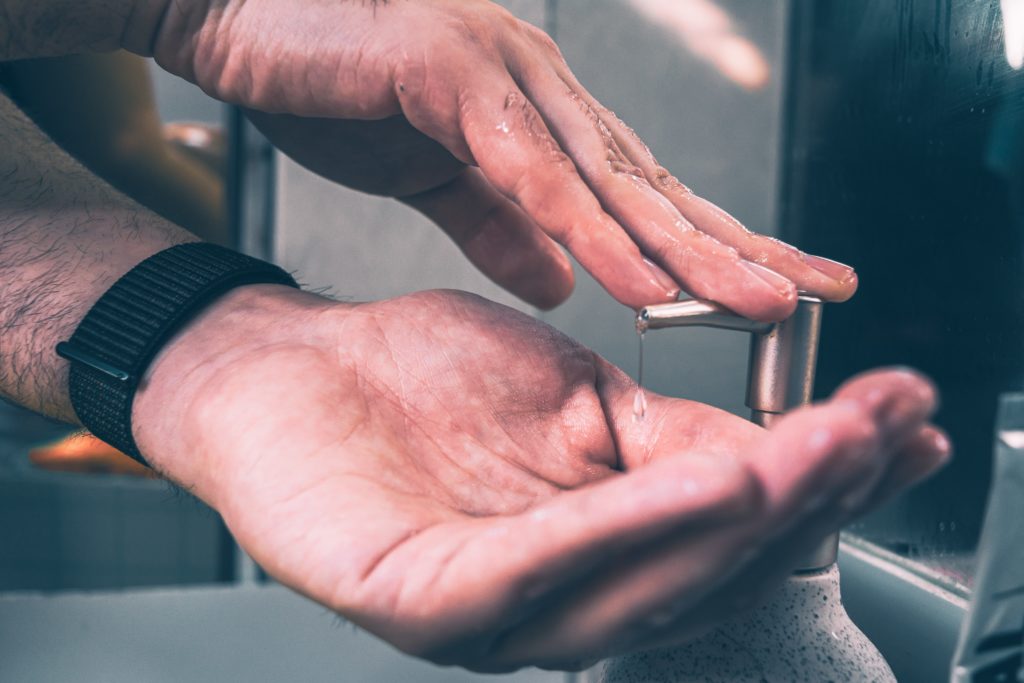by: Alexa Vernola, LAC & Cassandra M. Faraci, Psy.D.
In these uncertain times with COVID-19, many of us find ourselves incredibly worried about washing our hands and preventing sicknesses in ourselves and our family members. Someone may touch a surface, think “Did I touch COVID-19?”, and wash their hands frequently throughout the day. Parents may be overzealous in ensuring their kids are washing their hands multiple times per day. It’s common for those untrained in mental health to think, “Gosh, I must have OCD.” This is due to a lack of understanding of the true nature of obsessive-compulsive disorder (OCD).
When many people think of OCD, they often think of frequent hand washing, germaphobia, and excessive cleanliness. Persons struggling with OCD often experience unwanted and intrusive thoughts, images, or urges that cause incredibly intense fear, dread, disgust, doubt, and/or discomfort. In order to reduce or eliminate these strong and uncomfortable feelings, they engage in extremely time-consuming repetitive behaviors to convince themselves, with certainty, that the disturbing thoughts, images, or urges will not come true or to finally reduce physical discomfort.
So, if you’re one of many who has seen an increase in your vigilance about cleanliness and prevention of diseases, this does not mean that you have OCD. This means that you’re aware of a real potential threat and are working hard to protect yourself. OCD is much more complex than that. It can become incredibly distressing and time-consuming, which often impairs one’s ability to make it through the day and meet basic goals and task demands. Additionally, OCD involves thoughts, images, or urges that feel intrusive and that don’t belong in the person’s mind. For those without OCD worried about cleanliness, those thoughts likely don’t feel intrusive to you but an important and welcomed warning about a global threat.
So, in this current climate of dealing with COVID-19, one might ask, “Well, shouldn’t we all be extremely concerned about cleanliness?” We can also learn from someone who has been through exposure and response prevention (ERP) for OCD and utilize the tools that they often need to use on a daily basis.
- Persons with OCD often strives for complete certainty and control and must learn how to live in a world in which these things are impossible (for all of us). During this pandemic, this is exactly what we all need to understand. No one can see the future. We can take our best guess, but 100% certainty about the future does not exist. We all have very valid reasons for feeling anxious during this time, but this is where we can take a page from the treatment book of ERP and learn how to live amid uncertainty and fear, having belief in ourselves that we can cope with difficulty, tolerate distress, and look forward with hope to a more pleasant future. A great phrase to repeat to yourself is “I can handle uncertainty and have done it many times in my life.” You have the ability inside of you; you just have to remind yourself! Find freedom in letting go of control (which, none of us actually have). Control makes us feel safe, but it is a false sense of security. A much better goal would be to learn to live in a world with uncertainty, which is the world in which we all live. Shifting our focus from all things we cannot control to things we can control (distancing, disinfecting, wearing appropriate protective gear, etc.) can be empowering, yet we have to accept that, while we are doing all that we can, any outcome is possible. Accepting this can bring a sense of relief and peace.
- Just like persons with OCD, we all need to accept that anxiety is a normal human emotion, is not dangerous, does not always signal a true future threat, and will go away on its own. When we engage in extreme behaviors to avoid or escape an uncomfortable feeling, we are essentially telling ourselves that negative feelings are bad, maybe even dangerous, and must be made to go away as soon as possible. When we do this, we go through life believing that negative feelings are threatening, resulting in more stress, and possibly making our problems bigger. Our focus is on feelings reduction instead of problem solving. If we can accept that we may feel anxious during much of this pandemic yet understand that the anxiety itself is not dangerous, then we can spend most of our goal-directed behaviors on tasks at hand or spending quality time in things we enjoy (which are great for mental health).
- We all need to practice self-compassion. We are facing many emotions during this time, and they can often feel unmanageable. Though we cannot always choose our emotions, we can always choose how we respond to them. Being critical of ourselves for feeling normal human emotions will only create an increasingly negative headspace; instead, we can practice self-compassion and self-kindness during this difficult time.
Although I mentioned that hypervigilance about cleanliness does not necessarily mean that one has OCD, it is very possible that the stress of this pandemic can trigger OCD in someone at risk for the disorder. If you notice increasing stress and anxiety levels, OCD symptoms, or any other distressing thoughts, feelings, or behaviors, we are here to help. Here at The Center for Anxiety and Behavior Management, we have therapists who specialize in OCD, stress management, and anxiety who are ready to help you develop healthy coping skills. We know this time can be extremely difficult, but you are not alone. Please call us at (908) 914-2624 or email us at info@anxietyandbehaviornj.com to schedule a free consultation to match you with a therapist who specializes in working with your concerns.
